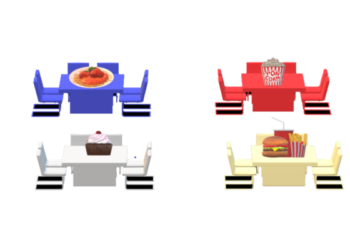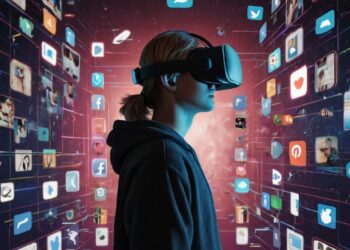Global businesses like Honda, Walmart, and Audi use the metaverse for virtual events or product launches to create immersive experiences. Companies like Walgreens create virtual doctor visits , where customers can have a real-time video consultation with one of their doctors from wherever they are. Some other companies are offering virtual tours of their products or services, providing users with an interactive way to explore and learn more about the company’s offerings, like the Hyundai Future Adventure. Metaverse can also be used to create virtual stores, allowing customers to shop online and have the items delivered directly to them. Some companies are already leveraging the opportunities in the Metaverse by moving and developing their businesses in the space.
A few Popular brands and their launch
Audi: Audi launched an interactive virtual showroom that allowed customers to explore their cars and even book a test drive.
Honda: Honda launched an interactive virtual dealership where customers can explore cars, get price quotes, take test drives, and even schedule service.
Target: Target launched 3D experiences that allow customers to explore products and purchase them directly from the virtual store.
Walmart: Walmart created a customizable 3D shopping experience that customers can access from anywhere.
Walgreens: Walgreens has begun offering virtual doctor visits for customers who need care but can’t make it into the office.
IKEA: IKEA uses the metaverse to provide customers with an immersive shopping experience by offering 3D models of their furniture that can be seen in a customer’s home before making a purchase.
Below are 5 ways companies are leveraging the metaverse to scale their business.
Marketing and advertising
The metaverse offers new opportunities for marketing and advertising that go beyond traditional banner ads or sponsored content. Businesses looking to advertise in the metaverse can now create a virtual billboard in a popular location for users to walk up to, and interact with. These metaverse billboards offer heightened features as compared to traditional billboards and digital display marketing. These features include links to all relevant web pages or socials from its ‘portal’, immersive and gamified experiences within the advertisement (users can walk inside the advertisement, portal links to other virtual world or branded content, music to enhance the immersive experience, product demos directly via billboards, and so much more).
Example Disney, have leveraged their vast portfolio of beloved characters and stories to create immersive experiences for fans. In the virtual space, Disney fans can embark on virtual theme park tours, exploring their favorite rides and attractions from the comfort of their homes.
Microsoft has transformed gaming worlds like Minecraft and platforms like Xbox worlds into marketing playgrounds.
Virtual Museums and Exhibits
Artists and museums can create digital (3D renders) of their art and exhibits, and be able to display them in virtual worlds. One major advantage of virtual technology is the interactivity with the art. Users will be able to get close and personal with the art.
Example: The Venice Biennale of Art, a major international art exhibition usually held every two years in Venice, Italy. Has its presence in the Metaverse through its VR platform, which allows users to explore the exhibitions and interact with the artworks in a virtual environment. Also,the Metropolitan Museum of Art’s “The Met 360° Project,” which is a virtual exhibition that allows users to experience the museum’s collections and exhibitions in a fully immersive VR environment.
However, a museum could create a virtual exhibit that allows visitors to explore a collection of artifacts from ancient civilizations, bringing history to life in a new and engaging way.
Real estate
The Metaverse Real Estate Market is a collection of virtual, digital, and interconnected space where individuals, corporations, and entities can buy, sell, develop, and inhabit virtual properties within a shared, immersive digital environment. The metaverse can be used to create virtual real estate that offers a new way to buy, sell, and rent property. For example, a real estate company could create a virtual tour of a property, allowing potential buyers to explore the space and even make virtual renovations before making a purchase.
Some companies in the virtual real estate industry include; Axie Infinity, Cryptovoxels, Decentraland Foundation, The Sandbox, TandB Media Global Thailand Co. LTD. amongst others.
Fashion Shows and conferences
The metaverse can be used to create virtual fashion shows that offer a new way to showcase designs and styles. With virtual clothing and accessories, once mass adoption of the blockchain comes into effect, we will start to see many more brands take advantage of making money selling virtual fashion in the metaverse as NFTs. The metaverse can be used to host virtual conferences and meetings that are more interactive and engaging than traditional video calls. Metaverse fashion council is one of the world’s largest fashion communities. A fashion summit will be held in Feb. 2024 featuring 100 renowned speakers at unique locations. Attendees have the opportunity to participate in lectures and receive special proof-of-attendance tokens (SBTs) and attendees can join fashion presentations and parties and receive special proof-of-attendance tokens.
Virtual Concerts
The metaverse provides aa avenue for artists to create virtual concerts that offer a new way to connect with fans. Here are some popular platforms for hosting virtual concerts; Decentraland, The Sandbox, Roblox, Fortnite, Horizon Worlds. Megan Thee Stallion and AmazeVR, a technology company, held advanced music concerts by presenting ‘Enter Thee Hottie Verse,’ a virtual concert organized for viewing in theaters between April and July 2022.
One use case for artists looking to enter the metaverse can look to offer all of their concert goers in person, an encore of their concert only available in the metaverse.
Virtual Philanthropy and Education
With the metaverse virtual classrooms and educational experiences can be created to a new way to learn. People, and students, all have different learning types and styles. Whether they are visual, audio, kinetic or physical learners, the metaverse provides a unique digital opportunity to provide fully immersive training and education modules that will satisfy all learning styles within one education platform.
Also, virtual fundraising events and campaigns can be made in the Metaverse that offer a new way to support charitable causes. Being able to connect a worldwide audience, with a reduced carbon footprint, and being decentralized by nature paints the ideal picture for non-profits, charities, and fundraisers to explore what benefits the metaverse has to offer.
Conclusion:
The metaverse provides companies and businesses with incredible opportunities to engage customers, build connections, and increase sales. By leveraging the Metaverse creatively, companies can come up with a competitive edge that will help them stand out from their competitors. Moreso, they can use it for fundraising, training purposes, or to host virtual events such as conferences, meetings, or trade shows.
















